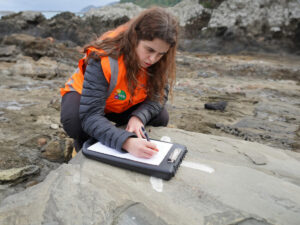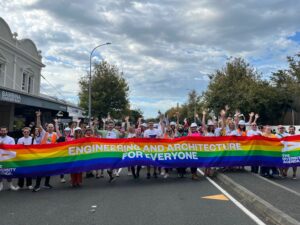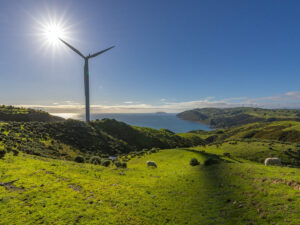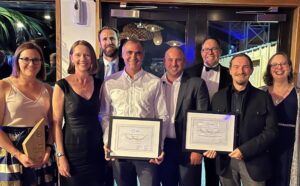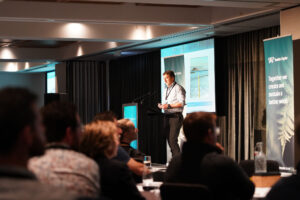The 29th Conference of the Parties (COP29) has brought nations, multi-lateral organisations, NGOs, and communities together in Azerbaijan to tackle the defining challenge of modern times; climate change. This global forum serves as a crucial opportunity to foster collective actions, align on policies, and unite for the greater good of our planet. The shared mission is echoed by this year’s theme ‘In Solidarity for a Green World’– reducing carbon emissions and placing immense importance on building resilience is essential for a sustainable future.
As Tonkin + Taylor joins the global conversations at COP29 with our partners from @Inogen Alliance, we are reminded of the collective responsibility and difficult sacrifices required to combat climate change effectively. These decisions, made through collaboration and consensus, drive forward our shared vision of a healthier, more sustainable future.
Week One Insights
The first week of COP29 has been eye-opening for those participating in negotiations, who have been discussing, The New Collective Quantified Goal (NCQG) which, if delivered, will be ‘the big prize’ of COP29. While progress has been made on some agenda items, the Presidency and Ministers are in for some long nights in week two. That said, Week One has been rich with insights, meaningful discussion, and points of contention.

Role of the private sector
As governments work through their negotiations on the NCQG for climate finance, the private sector is getting on with their work. Banks such as Barclays and CITI have committed to deploying trillions of dollars into green finance this decade. Private companies in the green zone showcased their own innovative thinking across sectors such as agriculture, transport, energy and water. Tonkin + Taylor supported the Azerbaijan’s largest food producer and exporter Azersun Holding MMC in a panel discussion on financing the energy transition.

Mobility as Resilience in the Pacific
Week one has highlighted the intricate challenges and inspiring solutions driving global climate action. The Pacific nations continue to lead discussions at the sharp end of climate adaptation, emphasising the urgent need for secure financing. These nations, on the frontlines of rising sea levels, are championing innovative pathways and international compacts to protect their ways of life.
Progress on Article 6 Negotiations
Early discussions on Article 6 negotiations show promise, signalling progress in defining the frameworks for international cooperation on markets and non-market approaches.
Showcasing the NAP MEL Toolkit
An NWP (Nairobi Work Programme) event on Monitoring, Evaluation, and Learning for adaptation, highlighted the new NAP MEL Toolkit, developed in collaboration with the International Institute for Sustainable Development.
It was great to see Tonkin + Taylor’s contribution making a tangible difference in understanding adaptation progress, and effectiveness, globally. Explore the Toolkit: Toolkit for Monitoring, Evaluation, and Learning for NAP Processes
Government of New Zealand at the COP
In addition to their active involvement in the negotiations, the team from MFAT has supported New Zealand-based businesses and NGOs to actively engage with the COP process. This has included daily briefings. Tonkin + Taylor was able to meet with Climate Change Minister Simon Watts and his team to discuss a range of issues pertinent to COP29 including the importance of international collaboration between companies to address climate change issues, as illustrated through our membership of the Inogen Alliance.

Addressing Loss and Damage
A powerful session at the SPREP Moana Blue Pacific Pavilion delved into Loss and Damage (L&D) complexities. Discussions included how Vanuatu and the Republic of the Marshall Islands are addressing the economic and non-economic impacts of climate change. Tough but necessary questions about mental health impacts and localised definitions of L&D were also explored. It was encouraging to see New Zealand’s Ministry of Foreign Affairs and Trade (MFAT) support for the Pacific on this critical issue gaining momentum.
As we progress, week one reminds us that achieving climate goals requires unprecedented collaboration across sectors and geographies. Every voice and action counts in building a resilient future, from Indigenous leadership in the Pacific to global finance mechanisms.

Looking ahead to Week Two
Finance remains a key theme, with negotiations on the New Collective Quantified Goal (NCQG) requiring a quantum leap from the previous $100bn annual target to better reflect. There are also critical issues relating to the Mitigation Work Programme, and links to the Global Stocktake.
On adaptation, both National Adaptation Plans, and the Global Goal of Adaptation remain contentious. Many would have hoped for more NDC announcements as well as a significant uptick in pledges (and real contributions) to the Fund for Responding to Loss and Damage (FRLD). The private sector’s role, as highlighted by entities like CarbonClick and CITI, demonstrates the evolving landscape of sustainable finance, where carbon offsets, nature-based solutions, and innovative green bonds are paving the way for impactful investments.







